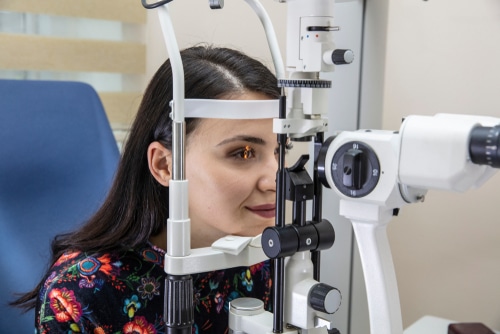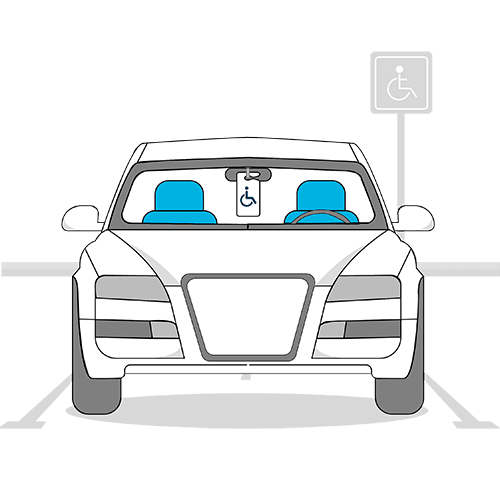World Glaucoma Week is 8-14 March and to mark this we wanted to share information about glaucoma in Australia. Unfortunately, glaucoma isn’t always a commonly understood condition despite it being fairly common, especially as we age. But after reading this, you’ll know the basics.
Here we cover what it is and what health management options exist, plus statistics around people living with glaucoma.
What is glaucoma?
The definition given by Glaucoma Australia for glaucoma is “the name given to a group of eye diseases where vision is lost due to damage to the optic nerve.”
So glaucoma isn’t just one condition, but could refer to a multitude of them. Those living with it will be well aware glaucoma causes irreversible damage and lost sight is not recoverable. Having said that, it can be managed to prevent further deterioration.
Those who don’t live with it likely won’t know the signs. And because most people would be unaware of your glaucoma, particularly if it isn’t advanced, it can be considered one of the many invisible disabilities.
As with any invisible disability, education leads to a better understanding for all. And hopefully, increased empathy amongst the general public.
What are the symptoms of glaucoma?
One of the first symptoms of glaucoma is a change in eye pressure. If you go for regular eye examinations, this is likely to be picked up in the early stages.
Why is that? An eye pressure test is usually conducted before your vision is tested. Yet another reason to stay on top of specialist visits – including the optometrist – as part of your health maintenance plan.
Other symptoms may include:
- Seeing halos around lights
- Vision loss, especially in peripheral or side vision
- Redness in your eye
- Eye that looks hazy
- Blurred vision
- Tunnel vision (usually only in advanced stages)
- Upset stomach or vomiting
- Severe eye or forehead pain
While glaucoma does come with symptoms, they’re often very gradual and subtle to start off with. This means that people are often unaware they have glaucoma until it’s quite advanced.
How common is glaucoma in Australia?
Glaucoma is a leading cause of loss of vision both globally, and in Australia. Estimates put the prevalence of glaucoma in Australia at around 3% of the population, with around half of those unaware they have the condition.
How do you treat glaucoma?
As mentioned above, glaucoma cannot be treated in the sense that you can reverse the damage. The condition won’t go away.
However, you can manage glaucoma and live with it. It won’t improve any damage done to your eyes, but treatment can prevent your vision loss from deteriorating further.
Glaucoma is managed by controlling and lowering your eye pressure. There are a few treatment options available including eyedrops, oral medication, surgery, and laser treatment. They all work in slightly different ways but have the same goal of reducing the pressure in your eyes.
The most suitable one will depend on your day-to-day life as well as your glaucoma diagnosis. You may also need more than one treatment option, depending on your circumstances. Your optometrist and doctor are your first ports of call in your glaucoma management journey.

Risk factors for glaucoma in Australia
Glaucoma in Australia is most prevalent in older adults, as it is worldwide. However, it can appear at any age. Some people are also more predisposed to developing glaucoma.
Common risk factors include:
- Family history of glaucoma
- Age (those aged 60 or over have a higher risk)
- Eye injury
- Significant vision problems (near-sighted or far-sighted)
- High eye pressure
- High blood pressure
- Cardiovascular disease
- Use of corticosteroid medication (e.g. inhalers or steroid creams)
- Thinning of the optic nerve
- Thin corneas
- Diabetes (if you’re diabetic, read our article about driving with diabetes)
If glaucoma is detected early, many people can delay its onset and severity and potentially experience minimal vision loss. So, to help prevent glaucoma, you should go for regular eye exams in an effort to pick up any potential issues early on. And be sure to keep your eyes protected from injury as much as possible. That means wearing protective eye gear during sports or activities where eye injuries are a possibility.
Glaucoma and insurance
Do you have glaucoma and need to use a disability parking permit or a disability converted vehicle? Know that Blue Badge Insurance offers specialist insurance for people with disabilities, and we offer significant discounts.
Why not have a look at our insurance offerings and see why we’re different to other insurance providers?
Glaucoma in Australia – over to you
Have you been diagnosed with glaucoma? What was your experience of symptoms and how do you manage it? If you’d like, share your firsthand experience in the comments. We’d love to hear your views.








